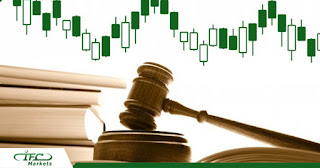How I Came To Know Forex Market
The moment we are born into this world, we embark on a lifelong journey of learning. We start out learning such basic things as walking and talking. A few years later we enter school, where we take on alphabet, writing, reading, as well as socializing, etc. In fact, many think that learning stops after school or college, but actually in our reality it doesn’t since each day we learn something new and this process of learning goes on and on till the end of our journey. On each step of our lives we come across with new phenomena that need to be discovered. Such phenomenon for me appeared to be Forex market.
Let me clarify in some words what Forex is. Forex stands for the Foreign Exchange market, which is one of the largest and the most popular financial markets in the world, with an average daily turnover of $5 trillion. In fact, the Foreign Exchange is an international currency market, where people from all over the world exchange the currency of one country for the currency of another country. The Foreign Exchange market operates 24 hours a day, 5 days a week (from Monday to Friday) giving traders the opportunity of generating a large amount of money on the price changes of various currencies.
Why did I make my mind to learn more about Forex market? Well, a friend of mine works at a Forex Brokerage Company. Every time we meet we start discussing a lot of things concerning our lives, except work. But once during one of our meetings I saw a book in her bag. And as I love reading a lot, I became curious. That was a tutorial, a forex tutorial. She advised me to read it. I've never heard about Forex before. I started reading. The more I read the more Forex attracted me. I embarked on searching for new articles, new Forex books. I got registered in different forums where people were discussing Forex trading and became one of the active members. I was really satisfied with the fact that I managed to discover a new sphere for me. And what is the most important, you don’t have to be a trader for getting involved in Forex.
You may ask “what are the benefits of learning Forex if you don’t trade”?
Well, I’ll just bring examples from my own experience. I’ve never liked risky businesses and Forex is considered to be a risky business. But that idea didn't make me give up on my decision of enlarging my knowledge on forex. The detailed examination of Forex gave me the opportunity to enter the world of finance. I found out a lot of new facts, words, types of contracts, learned names of some indexes, I'd never heard before like CFD (contract for differences), Futures, S&P 500, CAC 40, etc. I learned what factors may affect financial markets such as political, economical, cultural, etc. With the help of Forex I developed my analytical skills as well as my logic. Generally, as you see, I only gained from Forex. My knowledge on Forex is one of the best achievements of my life.
To sum up with, I'd like to advise everyone to enlarge their knowledge as much as they can on any aspect of life. It's the only thing that will never do you any harm!




